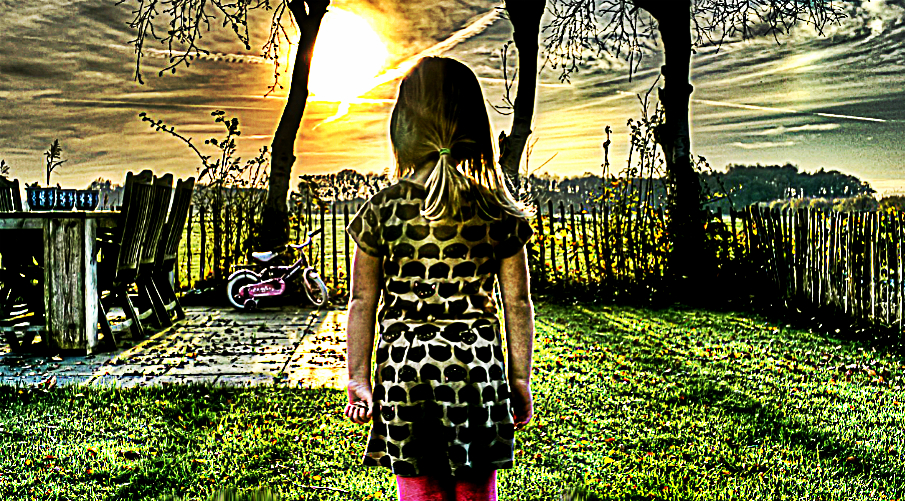Most people experience some form of trauma when they are a child. These experiences shape most of who we are today.
These traumas don’t have to be big. Most people don’t even know they have experienced something that stayed within them and shaped who they are.
The way a child observes reality is much different from our adult perspective, and most often that misunderstanding creates the trauma.
The child part of ourselves is at our center and as we grow we just put layers on top of this part.
That’s why you need to revisit your child part and let go of things that prevent you from unfolding and being the best version of yourself.
3 Childhood Experiences You Need To Let Go Off:

1. Experiences of fear.
We know that fear is a normal part of the process of growing. But for kids fear is fear. It’s something that evokes intense and painful emotions. Even adults struggle to accept fear as a normal part of their emotional being.
Most of the people in the world are afraid of speaking in front of others on a stage. When we were in school most of us were scared of failing our exams or asking out our potential date for our prom night.
But for a kid, fear can arise by being in a dark room. A kid can be afraid if they fall down and there is nobody to pick them up. Small things we don’t even think about when we grow up can be terrifying for any kid.
That’s why it’s important to connect with this childlike part of you and see if there are any experiences of fear that still linger in there. Even though you don’t consciously remember any, there might still be small moments.
Fear changes as we grow up, but the problem is not fear, it’s the resistance of fear. The experiences of fear still linger within our unconscious mind because we resist the fear we experienced in those moments.
Fear is part of us and we should accept the fact that fear will always be there. The purpose of life is growing. Realize that fear is the key ingredient in the process of growing. It should help you, not stop you from growing.
2. Experiences of “not good enough”.
From the grades we have at school to our sense of fashion, it is entirely reasonable and normal for parents, teachers, mentors, as well as role models to judge us while we were growing up.
We look up to these people and their opinion means the world to us. So if they judge us about something, we fragment out the judged part of ourselves and stop identifying with it.
Let’s say we pick up our hand because we want to answer something in school, and our school mates ridicule us for being a geek. So we dissociate with this part of ourselves.
The next time we feel the urge to act because we know an answer, or to learn because we want to learn, we suppress this urges. This continues to happen as we grow up.
We feel as if we are being continuously under the microscope of the people we admire, or the people with authority. This makes us feel unease and nervousness every time we are around people we like and idolize.
These fragmentations of yourself only justify your idea that you might not be good enough. But living with this idea makes you into something you are not. You need to embrace the wholeness of you and realize you are enough.
3. Experiences of trauma.
Most people think experiences of trauma need to be really big and sudden life changes, but an experience of trauma can be as small as being lost in the supermarket.
It’s not about the adult perspective of the event, it’s about the child’s perspective and experience of the event. The child part of you has a different perspective.
For an adult, a child being lost in the supermarket might be funny, but for the child it might feel as if it’s the end of the world. The emotion might be so strong that the child is unable to process it.
These emotional traumas stay with us being unprocessed within our emotional body. They stay there even though we grow and change. They reflect in the outer world in many different forms.
So for the example of the child being lost in a supermarket, a reflection of this traumatic emotion might be a resistance toward being alone, going out alone or being far away from home by ourselves.
These blockages give you comfort but they prevent you from really growing, following your purpose and living the way you really love to live. Letting go of the emotional traumas will liberate you to do what you want.






